CIA Sponsored Terror, Civil Liberties, Criminalizing Dissent, Human Rights, Political Prisoner, Surveillance, Torture, Truth to Power, War Resister
Podcast: Play in new window | Download
Updates:
- Co-host Attorney Michael Smith Reflects On The Anti-Union Oppression In Detroit And Wisconsin In The Late 50s
—-
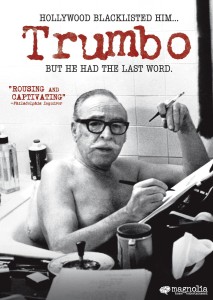
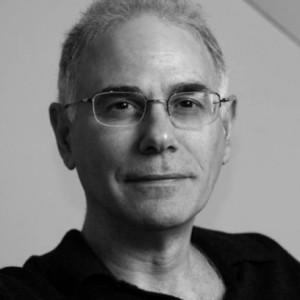
Trumbo
In the late 1930s and early 40s, many artists, writers, and intellectuals who sympathized with the poor, the labor movement, and the fights against racism and fascism aligned themselves with the Communist Party – which was then following the Stalinist policy of the “popular front”. Hence, when the governments anti-Communist witch-hunt got underway soon after the end of the second world war in 1946, many in Hollywood were placed under suspicion. Lists of names were drawn up, and those named were subpoenaed by the house committee on un-American activities (HUAC). Novelist and screenwriter Dalton Trumbo had joined the Communist Party in 1943, and he was on that list. In 1947, when called to testify before the HUAC, Trumbo refused to testify on the basis of freedom of association and freedom of thought, both supposedly guaranteed by the First Amendment to the constitution known as the Bill of Rights. Trumbo spent 11 months in federal prison in Kentucky. He was blacklisted and couldn’t get a job in Hollywood for 13 years, but won Oscars is for two movies that came out under other names. The movie Trumbo starring Bryan Cranston does an effective job of showing the fear of communism that was generated in those dark times and how it decimated Hollywood and was used for thought control.
Guest – Zachary Sklar, Oscar-nominated co-screenwriter of Oliver Stone’s film JFK, and author of the book JFK: The Book of the Film. He’s a journalist, and a professor at the Columbia School of Journalism. He was also a contributor to The Lies of Our Times, a monthly journal dedicated to exposing the truth behind the mainstream media. Zach collaborated with director Oliver Stone on the screenplay of the movie “JFK” and was editor of Jim Garrison’s book “On the Trail of the Assassins.”
Outgoing song – “Nothing” by the Fugs, performed by the Down Hill Strugglers
—

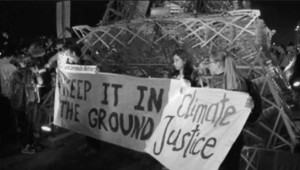
Climate Change Conference COP21
The meeting on controlling climate change by reducing greenhouse gases produced by fossil fuels concluded in Paris last week and involved representatives from every nation in the world. The agreement that came out a Paris is widely believed by climate change activists to be not nearly enough; That we need more reductions or our very existence is threatened. Critics of the talks say that it fell short because there were no timetables and no targets and no binding commitments.
Guest – Eleanor Stein, teaches a course called the Law of Climate Change: Domestic and Transnational at Albany Law School and SUNY Albany, in conjunction with the Environmental and Atmospheric Sciences Department at SUNY. Eleanor Stein is teaching transnational environmental law with a focus on catastrophic climate change. For ten years she served as an Administrative Law Judge at the New York State Public Service Commission in Albany, New York, where she presided over and mediated New York’s Renewable Portfolio Standard proceeding, a collaboration and litigation of over 150 parties, authoring in June 2004 a comprehensive decision recommending a landmark state environmental initiative to combat global warming with incentives for renewable resource-fueled power generation.
————————————————–
Civil Liberties, Criminalizing Dissent, Human Rights, Political Prisoner, Prison Industry, Truth to Power, War Resister
Podcast: Play in new window | Download

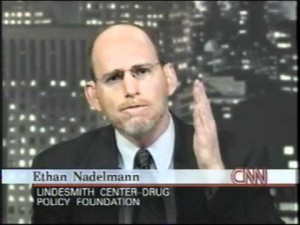
Drug Policy Alliance Looking Forward
In slow yet incremental steps, progress is being made toward establishing more sensible and humane drug policies in the United States.
The past half century has been characterized by politically-motivated hysteria around the so-called War on Drugs, resulting in harsh sentencing laws, and a subsequent soaring of mass incarceration rates. Half of the federal prison population is in for drug offenses, and the result has been highly detrimental to families and communities.
Two years ago former Attorney General Eric Holder announced that the Justice Department would begin to reassess the draconian mandatory minimum sentences on non-violent drug offenders that disproportionately target young African American and Latino males. Such public pronouncements, along with continued grassroots organizing, and heightened public awareness that the War on Drugs has been an abysmal failure, are helping to shift the tide in drug policies. The Drug Policy Alliance has made measurable strides in criminal justice reforms such as in helping to decriminalize marijuana in Colorado and Washington.
Guest – Ethan Nadelmann, founder and executive director of the Drug Policy Alliance, the leading organization in the United States promoting alternatives to the war on drugs. Nadelmann received his B.A., J.D., and Ph.D. in Political Science from Harvard as well as a Masters’ degree in International Relations from the London School of Economics, and taught at Princeton University for seven years. He has authored two books – Cops Across Borders and (with Peter Andreas) Policing The Globe – and his writings have appeared in most major media outlets in the U.S. as well as top academic journals.
—-
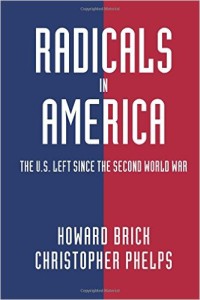
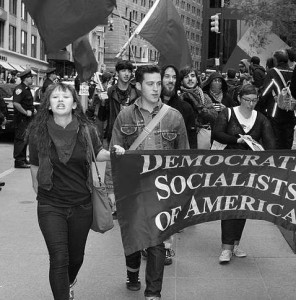
Radicals In America: The US Left Since The Second World War
Radicals in the United States, often controversial and frequently dismissed by the status quo, have nonetheless played a significant role in mobilizing social justice movements. In the recently published book “Radicals in America: The U.S. Left since the Second World War,” authors Christopher Phelps and Howard Brick have compiled
a comprehensive history of radicalism that includes the 1999 WTO protests in Seattle through the Occupy Wall Street movement.
The list of accomplishments by the Left is significant, including: racial integration, desegregation of the armed forces, the maintenance of labor unions for nearly 50 years until the election of President Ronald Reagan, the rise of feminism, abortion-rights, and the American withdrawal from Vietnam. The authors of Radicals in America explain how successive generations join movements of dissent, face political setbacks and repression and yet still have succeeded in sparking the imagination among mass movements.
Guest – Christopher Phelps, historian of modern American political and intellectual life. Born near Washington, D.C., he has taught at universities in five countries: Britain, the United States, Poland, Hungary, and Canada. He is author of the intellectual biography Young Sidney Hook (Cornell, 1997; 2d ed., Michigan, 2005) and Radicals in America (Cambridge, 2015), a comprehensive history of the American left since the Second World War co-authored with Howard Brick.
——————————————————
CIA Sponsored Terror, Civil Liberties, Criminalizing Dissent, FBI Intrusion, NSA Spying, Political Prisoner, Prison Industry, Surveillance, Targeting Muslims, War Resister
Podcast: Play in new window | Download
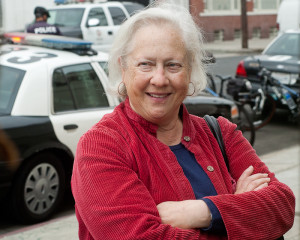
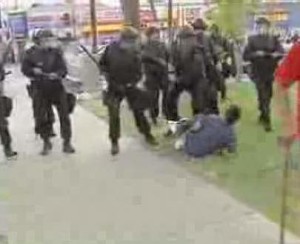
Lawyers You’ll Like – Attorney Carol Sobel
As part of our Lawyers You’ll Like series, we’re joined today by civil rights attorney Carol Sobel. Attorney Sobel has spent more than 2 decades working in various positions for the ACLU, including as Senior Staff Attorney. She also chaired the National Lawyers Guild mass defense committee for many years helping coordinate a nationwide defense of Occupy protesters and marshaling legal defense at several Democratic and Republican National conventions.
Carol has been involved in numerous significant cases in federal and state courts including on behalf of homeless individuals on Los Angeles’ skid row. She has been involved in numerous significant cases in federal and state courts. She served as local counsel for the Center for Constitutional Rights in Humanitarian Law Project v. Ashcroft and served on the Rampart Blue Ribbon Panel investigating police corruption in California. A graduate of the Peoples College of Law, since 2002, Carol has been named as one of Los Angeles’ Super Lawyers for Civil Rights.
—-


The War ISIS Wants: Nafees Hamid
Today we take a look into the psychology of terrorist recruitment and mindset in the wake of the coordinated attacks in Paris carried out by the Islamic state. We also look at the profound allure of the propaganda bringing young Muslims in to join ISIS and become a Mujahid. The transition from regular person to a warrior willing to die for the revolution happens quickly. In the article titled Paris: The War ISIS Wants by Scott Atran and Nafees Hamid, the ISIS movement is described as a trans-national movement, a sub state that doesn’t depend on an infrastructure of a state system. That and ISIS’s unitary message and appeal has created a big problem for the west using military action and ramped up mass surveillance to combat and intercept terrorist acts.
Guest – Nafees Hamid, Social Psychologist Nafees Hamid of University College London, researcher, actor and author of many articles including The War ISIS Wants.
——————————————
Civil Liberties, Criminalizing Dissent, Human Rights, Political Prisoner, Prison Industry, Supreme Court, Truth to Power, War Resister
Podcast: Play in new window | Download
Updates:
- University of Illinois Reaches Tentative Settlement With Professor Steven Salaita
—-
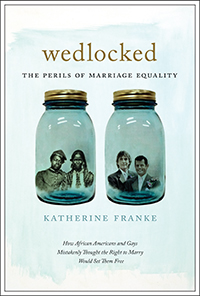
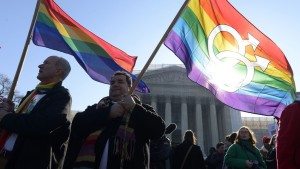
Wedlocked: Law Professor Katherine Franke
While the movement for marriage equality by the LGBT rights community has been a leading civil rights issue of the 21st century, it’s not the first movement seeking the right to marry. Slaves who were freed in the 1860s also organized for, and ultimately won, the right to marry at the end of the Civil War. As Professor Katherine Franke argues in her new book, WEDLOCKED: The Perils of Marriage Equality: How African Americans and Gays Mistakenly Thought the Right to Marry Would Set Them Free, tying the definition of free and equal citizenship so intimately to the institution of marriage presents its own set of problems.
In Wedlocked, Professor Franke meticulously compares firsthand accounts of African Americans’ struggle for freedom and civil rights with lessons for today’s marriage equality movement. This association offers two lessons: first, be careful what you wish for, as the backlash against new rights holders may set back the larger cause for equality; and second, the two movements for marriage rights may help expose the differences between racism and homophobia.
Guest – Professor Katherine Franke is the Isidor and Seville Sulzbacher Professor of Law at Columbia Law School, where she directs the Center for Gender and Sexuality Law. She is among the nation’s leading scholars in the area of feminism, sexuality and race.
—-
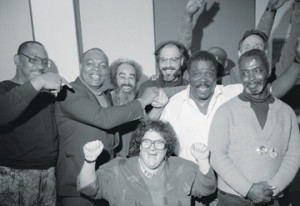
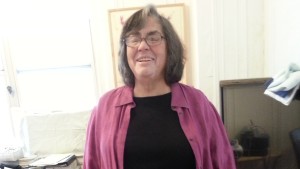
Remembering Attorney Liz Fink
Civil rights and criminal defense attorney Liz Fink was remembered last week at the Union Theological Seminary in New York City. She was best remembered for the work she began as a young woman when prisoners rioted and took over a part of Attica Prison in 1971. Liz got involved when Senator Nelson Rockefeller, who was running for president and didn’t want anything unseemly to happen in his state, ordered the retaking of the Attica Prison. Forty-three people were killed including a number of prison guards.
Liz Fink was on the defense team for those charged with crimes and then she brought an offensive civil suit against Rockefeller and the other state and prison officials who were responsible for these murders. Three decades later the suit was settled for $12 million. Liz Fink was also a long time member of the National Lawyers Guild. We hear selected speeches from the event remembering Attorney Liz Fink.
————————————————————-
Civil Liberties, Human Rights, NSA Spying, Political Prisoner, Prison Industry, Surveillance
Podcast: Play in new window | Download


Tapping In To The Flow: NSA Global Surveillance
We spoke with the director of the Library Freedom Project about a New Hampshire library standing its ground by using the TOR browser to protect the anonymity of its patrons from DHS surveillance. A victory yes, but also another stark reminder of what society now confronts while under a total surveillance state. Government spying technology has quietly built up its networks and invisible webs of surveillance. It’s mostly unseen, data passing through the air, cables behind walls, in the ground and underwater. Trevor Paglen brings these images and concepts into the public consciousness in his recent exhibit at a New York City Chelsea gallery.
Guest – Trevor Paglen has photographed and written about drones, military black sites and satellites. He’s an artist, image maker, journalist and engineer. He holds a PhD in experimental geography and contributed research and cinematography to the Academy Award-winning film Citizen Four.
—-
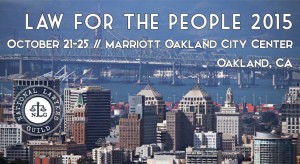
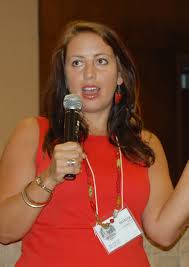
National Lawyers Guild Convention 2015
Natasha Bannan is the president of the National Lawyers Guild, as well as a human rights lawyer and Associate Counsel at LatinoJustice PRLDEF. At that national civil rights organization she works with low-wage Latina immigrant workers, and on the domestic implementation of human rights norms. Previously, she worked in the International Women’s Human Rights Clinic at CUNY School of Law and at the Center for Reproductive Rights. While attending CUNY School of Law, she was Editor-in-Chief of the CUNY Law Review and a Fellow at the Center for Latino and Latina Rights and Equality.
Guest – Natasha Lycia Ora Bannan, president of the National Lawyers Guild has advocated before international and regional human rights bodies on issues including colonialism, sexual violence in armed conflict, reproductive rights violations and hate crimes. She has written several articles and reports, specifically on gender and human rights. Natasha also co-chairs the National Lawyers Guild’s Subcommittee on Puerto Rico.
————————————————
CIA Sponsored Terror, Civil Liberties, Criminalizing Dissent, Habeas Corpus, Human Rights, Iraq War, Political Prisoner, Surveillance, Targeting Muslims, Torture, Truth to Power, War Resister
Podcast: Play in new window | Download


Puerto Rico: The Crisis Is About Colonialism, Not Debt
The commonwealth of Puerto Rico is in a social and financial crisis owing some 73 billion dollars to U.S. banks, hedge funds and vulture funds. The people of Puerto Rico are extraordinarily impoverished particularly the children. Last August the government of Puerto Rico failed to make a 58 million dollar debt payment on what they call a moral obligation bond held by U.S. banks and corporations. The crisis reflects centuries long colonialism and in particular the last centuries of American policies toward Puerto Rico which favored American investments which were then taken out of the island.
Guest – Attorney Linda Backiel, a criminal defense attorney and poet living and practicing law in San Juan, Puerto Rico. Here is Linda Backiel’s transcript from the talk she gave at the celebration of the 50th anniversary of the Criminal Justice Act.
—-

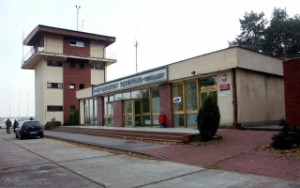
US Intel Vets Decry CIA’s Use of Torture
Former CIA leaders responsible for allowing torture to become part of the 21st Century landscape are seeking to rehabilitate their sullied reputations with the release of the book, Rebuttal: The CIA Responds to the Senate Intelligence Committee’s Study of Its Detention and Interrogation Program. They claim that the primary allegations against them stem from a partisan report issued by Democrats from the Senate Intelligence Committee. In fact, the Senate Intelligence report on torture enjoyed bipartisan support. But if the public doesn’t carefully read the extensively footnoted Senate Intelligence Committee report it may be easy for many to believe that the CIA officers are victims of a political witch hunt. As well, these officers seem to rely on the erroneous fact that a segment of the population continue to believe that the practice of torture is effective is gleaning information important to national security.
Guest – Raymond L. McGovern, retired CIA officer turned political activist. McGovern was a Federal employee under seven U.S. presidents in the past 27 years. Ray’s opinion pieces have appeared in many leading newspapers here and abroad. His website writings are posted first on consortiumnews.com, and are usually carried on other websites as well. He has debated at the Oxford Forum and appeared on Charlie Rose, The Newshour, CNN, and numerous other TV & radio programs and documentaries. Ray has lectured to a wide variety of audiences here and abroad. Ray studied theology and philosophy (as well as his major, Russian) at Fordham University, from which he holds two degrees. He also holds a Certificate in Theological Studies from Georgetown University.
————————————————























